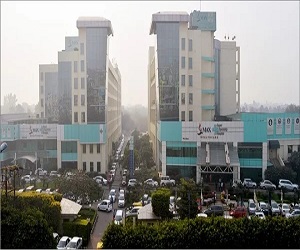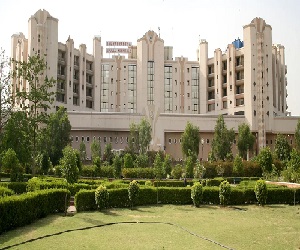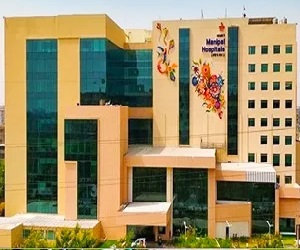Knee replacement surgery, known as arthroplasty, is a prevalent procedure in India aimed at alleviating pain and restoring function for individuals with severe knee joint damage. This surgical intervention effectively relieves knee joint pain and enhances knee flexibility, enabling patients to regain mobility. Continuous wear and tear can lead to knee damage, but surgery can restore the knee’s normal function, improving overall quality of life.
Benefits of Knee Replacement Surgery
Here you get an idea of the benefits of the surgery:
- The surgery offers relief from immense pain and discomfort, providing a permanent solution for knee pain and reducing reliance on painkillers, which may have adverse side effects.
- Knee replacement surgery yields a favorable response, enabling individuals to walk and even run once more. With restored joint function, there’s often no need for additional therapy or physical exercises, allowing patients to enjoy improved mobility and flexibility.
- Now, there are advanced anesthesia techniques that completely numb the area and reduce post-operative pain.
- Partial knee replacement involves smaller incisions, and there is no need to stay in the hospital for a longer period.
Your doctor may recommend an X-ray or CT scan to assess the extent of knee damage. Initially, medications and therapies may be advised, with surgery considered as the final and most effective solution.
Who needs knee replacement surgery?
Individuals with osteoarthritis often require knee replacement surgery to alleviate their symptoms. Similarly, those with rheumatoid arthritis, an autoimmune condition characterized by severe joint pain and damage, may also benefit from this surgical intervention.
How is the surgery done?
Here are the steps showing how knee surgery is done:
The doctor first cuts in front of the knee and removes the kneecap. It helps in accessing the knee joint.
Then, the doctor removes the damaged thigh and shin bone and replaces them with a dummy joint. It’s important to set the position of the dummy joint, and adjustments are made to the bone ends.
Surgeons utilize a curved metal component to replace the damaged thigh bone, facilitating the fitting of the final prosthesis. A bone adhesive may be employed to secure the metal in place, ensuring its stability. This metal component acts as a substitute for cartilage, reducing friction and enabling smoother joint movement.
In certain cases, surgeons may opt to replace the back of the kneecap, depending on the extent of damage present. Detailed examination of X-ray and CT scan reports is conducted by the doctor to assess the condition of the kneecap and determine the necessity for this additional procedure.
Doctors may use stitches or clips to cover the wound. Some patients may get a splint to control knee movement.
So you get a clear view of how doctors carry out the surgery. Patients need to stay 5-8 days in the hospital.
Recovery and Post-Surgery Care
Recovery following knee replacement surgery is a gradual journey that necessitates diligent care and rehabilitation. Here are some crucial aspects of post-surgery care:
- Hospital stay: Following the surgery, you will typically remain in the hospital for several days for observation and initial recovery. The medical team will closely monitor your progress, manage any pain, and guide you through mobility exercises.
- Physical therapy: Physical therapy is paramount in the recovery journey. Your doctor will prescribe a tailored physical therapy regimen to aid in regaining strength, flexibility, and mobility in your knee joint. Adherence to the exercises and guidance provided by your physical therapist is crucial for optimal recovery.
- Medication and pain management:Your doctor will provide pain medication to alleviate post-operative discomfort. Adhering to the prescribed medication schedule is essential, and it’s important to promptly inform your doctor of any side effects you may experience.
- Follow-up visits: Attending all scheduled follow-up appointments with your doctor is crucial to ensure proper healing and monitor your progress. Your doctor may advise X-rays or other tests to assess the success of the surgery and the functionality of the artificial implant.
Indeed, post-surgery care and rehabilitation are pivotal for a successful recovery. It’s imperative to follow your doctor’s instructions diligently, maintain consistency with your physical therapy regimen, and promptly communicate any concerns or challenges you encounter throughout the recovery journey.
Risks and Complications
Before you get the surgery, it’s important to know the risks and complications:
- After the surgery, you may get an infection, and your doctor will prescribe medicines to recover from the infection.
- You may get blood clots, and doctors prescribe blood-thinning medicines to avoid getting blood clots.
- Some patients may feel persistent pain after the surgery. Usually, you need pain medications, and gradually, with time, it will go away.
Why Consider Knee Replacement Surgery in India?
India has become a favored destination for medical tourism, particularly for knee replacement surgery. There are several reasons why patients from around the world choose to undergo this procedure in India.
The primary reason patients opt for knee replacement surgery in India is the significantly lower cost compared to many other countries. This is attributed to the lower cost of living and the availability of highly skilled doctors and medical staff. Despite the affordability, the quality of healthcare in India remains uncompromised. The country boasts state-of-the-art medical facilities and hospitals equipped with advanced technology, adhering to international standards.
In addition, India boasts a large pool of experienced orthopedic surgeons specializing in knee replacement surgery. With their wealth of experience and expertise, patients can expect high-quality care and successful outcomes. Furthermore, the warm and welcoming nature of Indian hospitality ensures that patients feel comfortable and well-supported throughout their treatment journey.
Knee Replacement Surgery cost in India are as follow
| Treatment | Cost in USD | Stay in Hospital |
| Knee Replacement Surgery | 3000-3500 | 2-3 Days |
| Anterior Cruciate Ligament (ACL) Surgery | 2000-2500 | 1-2 Days |
| Arthrodesis Surgery | 3500-4500 | 2-3 Days |
| Hip Replacement Surgery | 3500-5000 | 2-3 Days |














